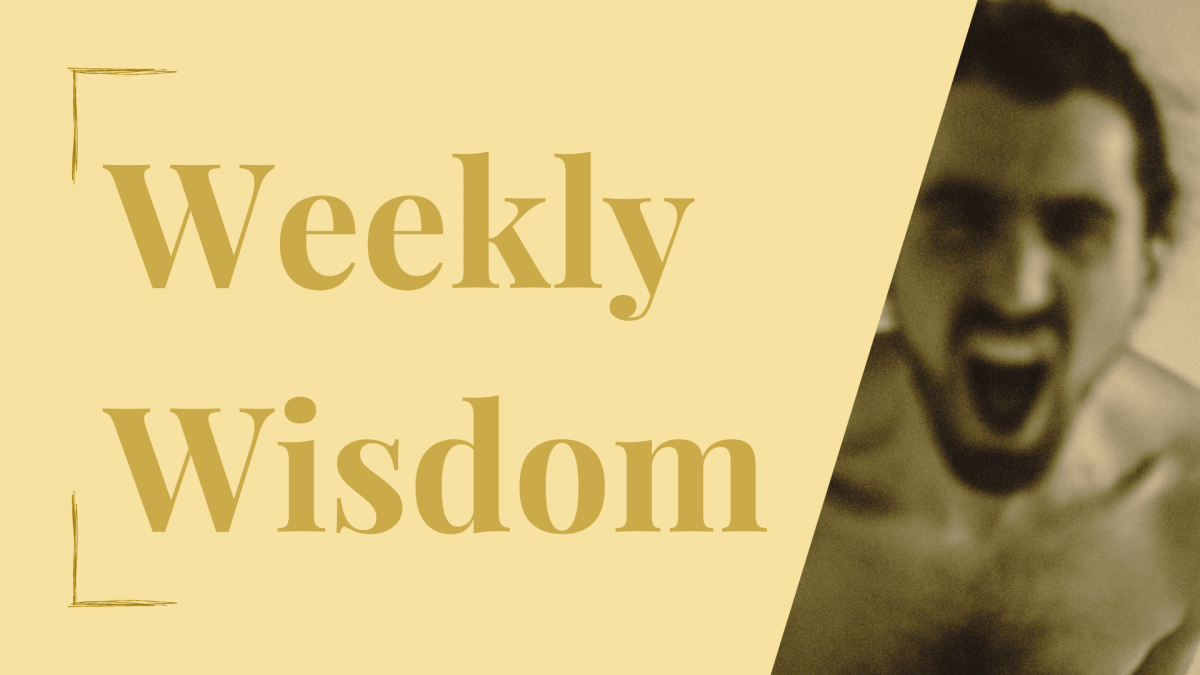Hello Everyone
Welcome to Weekly Wisdom, your weekly dose of highlights, quotes and notes from my notebook. If you would like to receive this in your inbox, subscribe now.
The translation of ‘How to Make Wealth’ continues. Today I’d like to share:
- Lessons from “How to Read a Book” by Mortimer Adler: It seems redundant to write a book on how to read a book. However, Mr. Adler presents the value of reading analytically in such beautiful way. Of course, I used his own lessons to summarize his book.
The Shape of Real Work
Investor and Author Paul Graham recently posted this essay on working hard. He explores one factor of hard work that many disregard, what to work on. This section gets at the heart of the issue. What you are good at isn’t necessarily what you are interested in.
As well as learning the shape of real work, you need to figure out which kind you’re suited for. And that doesn’t just mean figuring out which kind your natural abilities match the best; it doesn’t mean that if you’re 7 feet tall, you have to play basketball. What you’re suited for depends not just on your talents but perhaps even more on your interests. A deep interest in a topic makes people work harder than any amount of discipline can.
It can be harder to discover your interests than your talents. There are fewer types of talent than interest, and they start to be judged early in childhood, whereas interest in a topic is a subtle thing that may not mature till your twenties, or even later. The topic may not even exist earlier. Plus there are some powerful sources of error you need to learn to discount. Are you really interested in x, or do you want to work on it because you’ll make a lot of money, or because other people will be impressed with you, or because your parents want you to?
—Paul Graham, How to Work Hard
Righteous Rage, or Lack Thereof
Philosopher Agnes Callard shares her thoughts on Anger Management. These two paragraphs are perfect reflections of both sides of anger. The whole essay is highly recommended.
Among humans as well, at times it is only the angry who are in a position to apprehend the magnitude of some injustice. For they are the ones willing to sacrifice all their other concerns and interests so as to attend, with an almost divine focus, to some tear in the moral fabric. When I am really angry, it is not even clear to me that I can calm down—the eyes of the heart do not have eyelids—and the person making that request strikes me, to adapt a locution of Socrates’, as trying to banish me from my property, the truth. They are calling me “irrational,” but they seem not to see that there are reasons to be angry.
On the other hand, there are also reasons not to be. Aristotle says that anger is a desire for revenge, and he is right, though angry people will tend to call it by another name. Anger inclines people to apply exalted labels (“justice,” “accountability”) to acts of vengeance; it is a fog in which bad things look good, just because someone else did bad things first. Consider, for example, how people who would otherwise think it patently immoral to mock others’ physical appearance often feel free to do so when the target has been deemed unjust.
—Agnes Callard, Anger Management
We are all Bohemians
Writer Sheila Heti tries to answer a question that has plagued introverts such as myself for eons; Why Go Out? Why bother meeting people when you will end up being drained?
(Emphasis mine.)
But perhaps that’s what it’s for – self-confidence, courage, energy and peace – perhaps it’s to be used in the world. Perhaps there’s only one thing to do with it: spend it.
I’m always super-aware of how whenever I go out into the world, or whenever I get involved in a relationship, my idea of who I think I am utterly collides with the reality of who I actually am. And I continue to go out even though who I am always comes up short. I always prove myself to be less generous, less charming, less considerate, not as bold or energetic or intelligent or courageous as I imagined in my solitude. And I’m always being insulted, or snubbed, or disappointed.
And yet, in some way, maybe this is better. Each of us could suffer the pangs of withdrawal from other people and gain the serenity of the non-smoker. We could be demi-gods in our little castles, all alone, but perhaps, deep down, none of us really wants that. Maybe the only cure for self-confidence and courage is humility. Maybe we go out in order to fall short, because we want to learn how to be good at being people, and moreover, because we want to be people.
—Sheila Heti, Why Go Out?
The Human Condition
This Guardian column from 2014 talks about the
Are we mad? In his book Back To Sanity, the Leeds Metropolitan University psychologist Steve Taylor answers: yes. The condition he diagnoses, “humania”, isn’t recognised as a disorder, but only because we’re all victims, he argues, and it’s part of the definition of a mental illness that most people don’t have it. The “urge to immerse our attention in external things is so instinctive that we’re scarcely aware of it”, he writes. We often speak of emails, tweets and texts as if they’re annoyances that we’d eliminate if we could. Yet the truth, of course, is that half the time we’re desperate to be distracted, and gladly embrace the interruption.
—Oliver Burkeman, This column will change your life: just sit down and think
Thank you for joining me this week. If you know some who might enjoy this, please forward this email to them or share the link. See you next week.
Mudassir Chapra

